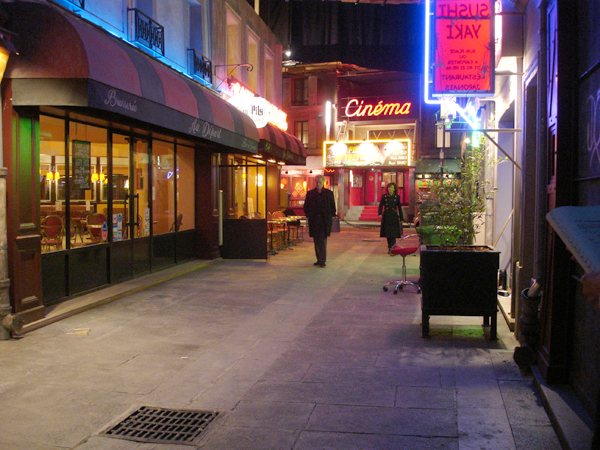|
Reviews of Recent Independent, Foreign, & Documentary Films in Theaters and DVD/Home Video

WILD GRASS For Wild Grass, check your brain at the door, but not for the same reasons you might settle in for a screening of Iron Man 2. Shrug off any expectations you might during 88-year-old Alain Resnais’ latest film. He doesn’t follow a set pattern, even when it appears as if he has taken the route of a wry, sophisticated comedy or a thriller or a farce. It’s a return of sorts for Resnais after his last two fairly straightforward play-to-film adaptations. At a press conference at the New York Film Festival, he compared Wild Grass to a jazz riff, and it’s an appropriate comparison. It’s not that the interactions are improvisational. Far from it. A disciplined exactness underlines the acting and writing. The looseness comes from the on-the-dime change in tone and in the mutating storytelling—and that’s what the film’s really about, the God-like storyteller’s power to seduce, mislead, and to do what He pleases, playing fast and loose with the characters. Resnais, without a doubt, takes top billing, upstaging a cast that includes three hot French actors (Anne Consigny, Emmanuelle Devos, and Mathieu Amalric) and his regular pawns—er, players—André Dussollier and Sabine Azéma. The opening cord in the beautiful Bernard Hermann-ish score by Mark Snow hints at something sinister, a sadistic streak that pierces through the lightheartedness. The omnipresent male narrator takes his time setting up the premise, warning that you never know what the commonplace and the mundane can lead to, in this case, a daytime purse snatching, which triggers a domino effect of emotional complications. In a suburban parking lot, Georges (Dussollier) spots a discarded wallet under his front wheel. He opens it and pores through the contents. In her driver’s license, Marguerite Muir looks sad, but in her photo for an aviation license, she’s another, more confidant person. Fantasies spin in his head. When she calls to thank him for turning her wallet over to the police, he asks to meet her. She politely declines, but he can’t stop thinking about her. Then begin the daily phone calls to her. Stuck in his well-appointed country home while his beautiful wife works, Georges, ostensibly retired, is like a John Updike suburbanite grasping at straws. The mysteries surrounding his contradictory motivations, and later Marguerite’s, actually make them more empathetic than confounding (though the same may not be said of the film). Resnais matches Georges’ overactive imagination with one visual flourish after another. The would-be writer believes what he imagines, and Resnais wills the audience to believe it, too. If the film centers on the desire for desire (as Resnais has described it), Wild Grass is also a mash note to filmmaking. Resnais whips out many tricks from classical filmmaking: fluid, dreamy tracking shots; an obvious neon-lit cityscape studio set; fades in and out; a hyperactive zoom lens; and overhead shots, filmed on high, making the ant-like characters more vulnerable. This is easily Resnais’ most cinematic (and less talky) film in over a decade. (In a tip of the hat to Hollywood, Georges expresses a fondness for the William Holden 1954 war film The Bridges at Toko-Ri.) But then
there’s the ending. Even with plenty of foreshadowing, Resnais risks
alienating the audience. Instead of provoking discussion, it might just
lead to head-scratching. The first time seeing the film, its abruptness
came across as capricious. The second time, it seemed all of one piece.
Structurally, the film won’t strike viewers as audacious. It’s no way as
confounding as Resnais’ groundbreaking jigsaw puzzles from the 1960s—in
this regard, its transitions are thoroughly linear. Overall, what you see is what
you get. He’s having fun;
whether it’s at the audience’s expense or not depends on how much you
give into him. Kent Turner
|

